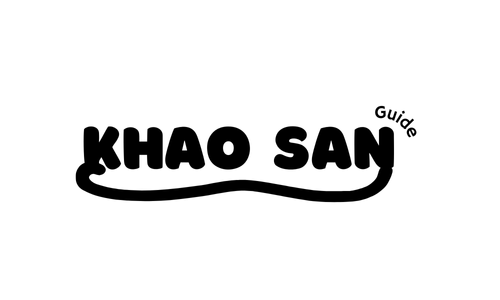Looking to pursue education that combines practical skills and academic learning at Thai Universities? Technical and vocational education in Thailand is gaining recognition for its innovative approach and career-focused programs. With international collaborations, state-of-the-art facilities, and a wide array of specializations, Thailand’s technical and vocational education and training (TVET) institutions offer exceptional opportunities for students worldwide.
This blog dives into everything you need to know about TVET in Thailand, from the importance of its programs and institutions to career opportunities and the application process.
Why Choose Technical and Vocational Education in Thailand?
A Thriving Sector for Hands-On Learning
TVET programs in Thailand are designed to prepare students with practical skills and technical expertise tailored to meet global market demands. If you’re an international student, enrolling in a Thai vocational university gives you the opportunity to enhance your employability while immersing yourself in a culturally rich environment.
What Makes TVET Unique for International Students:
- Career-Oriented Learning: Focus on practical, industry-relevant skills.
- Inter-industry Collaboration: Partnerships with global corporations for internships and real-world projects.
- Affordability: Cost-effective tuition paired with low living expenses.
“TVET in Thailand offers international students a unique blend of academic knowledge and practical skills, preparing them for successful careers.”
— Dr. Anya Sharma, Education Consultant
Top Technical and Vocational Universities in Thailand
Here’s a list of universities and colleges that make Thailand a destination of choice for vocational education enthusiasts.
- Chulalongkorn University: With a rich history of over 100 years, the university offers TVET programs in engineering, architecture, and technology management.
- King Mongkut’s Institute of Technology Ladkrabang: This institution has gained global recognition for its expertise in aerospace engineering and aviation technology.
- Rajamangala University of Technology Thanyaburi: The university is renowned for its strong connections with industries such as automotive and fashion design.
- Suan Sunandha Rajabhat University: Known for its cutting-edge research facilities, this university offers specialized programs in tourism and hospitality management.
- Rangsit University: The university offers a diverse range of TVET programs in fields such as business administration, aviation management, and digital media.
Career Opportunities
Thailand’s booming economy has created a high demand for skilled professionals, making it an ideal destination for students looking to launch their careers. With hands-on training and industry partnerships, TVET graduates are highly sought after by top employers in various sectors such as hospitality, engineering, and technology.
Some popular career options for TVET graduates in Thailand include:
- Aircraft Maintenance Engineer
- Hotel Management Executive
- Fashion Designer
- Automotive Technician
- Digital Marketing Specialist
Public Vocational Institutions
Thailand’s public institutions under the Office of Vocational Education Commission (OVEC) are anchored in a tradition of excellence, offering programs such as:
- Vocational Certificates (Por Wor Chor)
- Technical Diplomas (Por Wor Sor)
- Higher Diplomas
Some notable institutions include:
- Prachinburi Technical College – Widely recognized for its excellence in electronics education and hands-on technical training, preparing students for careers in cutting-edge industries.
- Burapaprachin Technical College – Provides well-rounded programs in hotel management, machinery maintenance, and other technical fields, equipping students with the skills needed to thrive in diverse, high-demand professions.
Private Vocational Institutions

Private colleges in Thailand cater to a variety of industries, including commerce, agriculture, tourism, and ICT. These institutions are known for their flexibility and targeted programs.
For example:
- Mahachai Institute of Automotive Technology specializes in comprehensive automotive training, equipping students with the skills needed for a dynamic and evolving industry.
- Thai-Nichi Institute of Technology blends Japanese technological expertise with modern education, fostering innovation and cross-cultural collaboration.
Prominent Technical Universities

Technical universities are essential in shaping the future workforce by providing advanced vocational education and fostering innovation. Here are some standout institutions leading the way:
- King Mongkut’s University of Technology Thonburi (KMUTT) – Esteemed for its strong engineering and computer science programs, KMUTT is a leader in research and innovation, consistently producing industry-ready graduates.
- Suranaree University of Technology (SUT) – Known for its cutting-edge programs in mechatronics and robotics, SUT emphasizes hands-on learning, preparing students for careers in emerging technological fields.
- King Mongkut’s Institute of Technology Ladkrabang (KMITL) – A hub for IT and tech education, KMITL combines practical training with theoretical knowledge, empowering students to excel in rapidly evolving industries like AI, cybersecurity, and data science.
These institutions continue to drive progress in education and technology, creating opportunities for students and contributing to global advancements.
Programs and Specializations
Thai vocational universities and colleges offer a wide range of programs across different industries. Here are a few key areas of specialization to consider:
Engineering and Technology
Programs include:
- Robotics
- Mechatronics
- Civil Engineering
Tourism and Hospitality
Study areas:
- Hotel Management
- Culinary Arts
- Event Planning
Information and Communication Technology (ICT)
Courses include:
- Software Development
- Cybersecurity
- Network Administration
Agriculture and Sustainability
Focus on:
- Smart Farming Techniques
- Sustainable Agriculture Practices
These programs combine theoretical knowledge with real-world applications, enabling students to graduate job-ready.
How to Apply as an International Student
Starting your TVET application in Thailand is simple. Just follow these steps to secure your spot in your desired program:
- Explore Programs
Begin by researching available courses on institution websites or the Thai Ministry of Education portal for up-to-date information.
- Gather Necessary Documents
Prepare the following:
-
-
- A copy of your passport
- Academic transcripts
- Proof of English proficiency (IELTS/TOEFL)
-
- Submit Your Application
Complete your application online through the official admissions portal of your chosen institution.
- Stay Aware of Deadlines
Be mindful of varying application deadlines, as they differ by institution.
Pro Tip: Many institutions offer scholarships and financial aid. Be sure to explore these opportunities to support your studies.
Accommodation and Living Costs

Studying in Thailand comes with the added benefit of affordable living expenses. Here’s what you can budget for:
- Accommodation: $150–$300 per month (student dormitories or shared apartments)
- Food: Meals can range from $1–$5 at local eateries.
- Transportation: Public transit costs are minimal, with options like buses and BTS Skytrain.
- Miscellaneous: Monthly expenses such as utilities and internet range between $50 and $100.
The overall cost of living is significantly lower than in Western countries, making Thailand an excellent choice for international students.
“International students benefit from Thailand’s affordable living costs and rich cultural experiences while pursuing TVET programs.”
— Ms. Emily Chen, Student Advisor
Visa Information for International Students
Before you finalize your enrollment, secure a non-immigrant education visa. Here’s what you need to apply:
- Admission letter from the institution.
- Proof of financial support.
- Passport with at least six months’ validity.
- Visa application form available through Thai embassies or consulates.
Pro Tip: Many universities assist with visa documentation and provide support throughout the process.
Career Opportunities After Graduation
TVET graduates are highly sought after in fields such as engineering, IT, hospitality, and manufacturing. With practical skills and industry-specific training, international students often find positions in multinational companies or gain entrepreneurial expertise.
“The focus on industry-relevant skills makes Thai vocational universities an excellent choice for students seeking immediate employment opportunities.”
— Mr. Vichai Tan, Industry Liaison
Key Industries for Employment:
- Technology
Exciting opportunities in software engineering, robotics, AI development, and emerging fields like machine learning and blockchain technology. Perfect for innovators and problem-solvers ready to shape the future.
- Hospitality
A growing need for skilled professionals, including hotel managers, chefs, event planners, and customer experience experts. Ideal for those passionate about creating unforgettable experiences.
- Agriculture
Thriving careers in sustainable farming, agri-tech startups, and precision agriculture. Join a sector at the forefront of feeding the world while protecting the planet.
Why Study TVET in Thailand?
Pursuing education in Thailand is more than just an academic experience—it’s a lifestyle decision. Combining practical expertise with cultural adventure, Thai vocational universities offer unmatched opportunities for international students.
Here’s why it’s worth considering:
- Exceptional programs married with hands-on learning.
- Affordability in tuition and cost of living.
- Internationally-recognized certifications and career opportunities.
Not sure where to begin? Visit the Thai Ministry of Education website for detailed guidance or explore scholarships tailored to international students.




